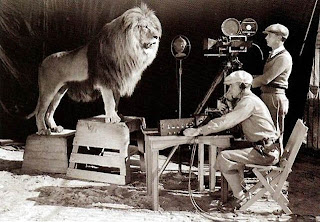1. Make sure you have a good microphone. If you start off with garbage, all you can make in the end is "polished garbage". An MXL 990 is a good one to start with and it's very cheap; only $50. With the proper mix this thing can do magic, but in most cases, what you pay for is what you get.

2. Experiment on different mic positions while recording (close to you, far from you, etc). Some voices call for different positions. Also, the desired effect can call for a certain position as well. If you want to sound like you're in someone's ear (Which isn't a bad thing) then you want it close. If you want to scream, back up!
3. Don't over edit your vocals. This is a huge problem that I see people do all the time. A lot of people add a bunch of effects on the master track of their song making the whole song reverbed or compressed. This is a terrible practice. Leave the master track alone unless you're adding a slight limiter to prevent clipping or something else very light. You don't want to over compress or over EQ anything. A lot of the time, all that's needed is to, compress it and add little touches of EQ boost/decrease.
4. There is no "magic setting" you can put a compressor on. Different songs and voices call for different effects. The best way to skillfully use a compressor is to understand how it works and tweak it according to your mix. Most compressors have the same knobs as follows: "Threshold" which is the cutoff where the compressor will turn on. Once the volume of the track being compressed reaches the number you've set, the compressor will take any sound louder than that setting and bring it down, or compress, it. Then there is the "attack" setting which is how fast the compressor comes into effect when your track starts sounding. Then the "release" setting which is how long your compressor will keep working even once the sound is done. These and + & - gain (volume) knobs are the most common compressor settings.
5. Recording multiple takes is ideal. You'll almost never get the job done with one take. Record multiple times just to be able to pick out from the best one. If you think your vocals need to be filled more, don't just add a chorus effect, record it again, over dub the takes and pan them out. You'll get the job done much easier and efficiently that way.
6. Adding reverb and delay is also called for in some songs, but don't overdo it! In general, you'll want reverb and delay on most of your songs, but you want it so low that unless there's a drop in the beat, or someone with very good ears is listening, you don't want listeners to know it's there. I'm sure now you're thinking "If they don't know it's there, why waste time putting it in?". Well think about this, (This is mostly aimed at producers/engineers) but haven't you heard something in a song that you barely notice, but if it wasn't there, you'd feel like something is missing? The same concept applies here. So add some slight reverb and delay if you feel your vocals are missing a little presence.
7. Make sure you're loud! You're never gonna make a good recording if you're scared to sound like you have some confidence in yourself. You need to attack the mic like you know what you're doing and you know you're gonna do it well. I cannot stress on this enough. This can be the difference between a good song and a flop. I've had many people submit songs to me where they weren't putting enough feeling into it. The real bad part is, it can't be faked; I can tell you to put feeling into your recording all day, but if you are only "getting louder" you'll sound like a screaming, non-confident artist and that's not the desired effect either. Have some confidence; listeners will be able to tell.
8. Don't be shy! I know some people are recording in their bedrooms and other "not recording friendly" environments and they have people outside of the door that can hear them. A lot of people are shy and don't want people to hear them record. Here's a huge tip for those people; get over it. I know it feels stupid because you're just yelling rhymes into this metal object, but they're gonna hear you, and if you sound like you're scared for people to hear you record, listeners will notice. Again, have confidence.
9. Lastly, take a listen to some songs you've bought. Always buy you're music unless its being given by the artist for free. You're in the music business, don't steal from it!. Compare your mix to one that's been professionally mixed and don't be afraid to mimic it a bit. You're voice is different from theirs, but just try it out. It's a great way to learn different techniques.
No comments:
Post a Comment